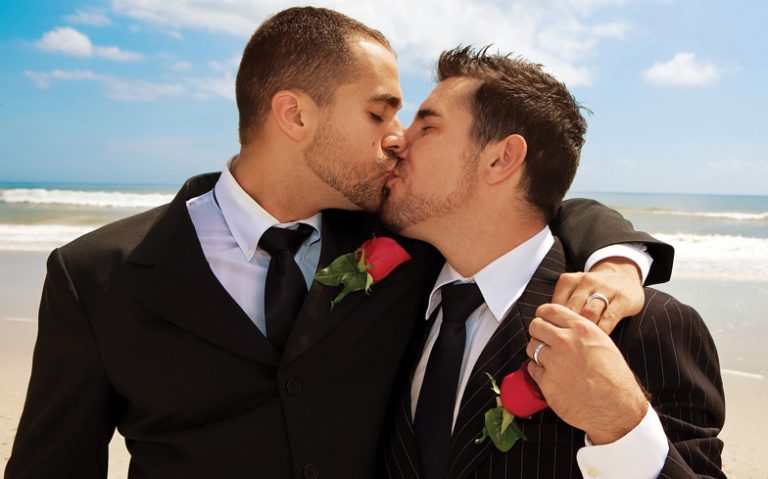HAVANA, (Reuters) -
Cubans approved gay marriage and adoption overwhelmingly in a Sunday referendum backed by the government that also boosted rights for women, the national election commission said on Monday.
More than 3.9 million voters voted to ratify the code (66.9%), while 1.95 million opposed ratifications (33%), Alina Balseiro Gutierrez, president of the commission, said on state-run television on Monday.
"Justice has been done," Cuban President Miguel Diaz-Canel wrote in a tweet.
"It is paying off a debt with several generations of Cuban men and women, whose family projects have been waiting for this law for years," he said.
The 100-page "family code" legalizes same-sex marriage and civil unions, allows same-sex couples to adopt children, and promotes equal sharing of domestic rights and responsibilities between men and women.
Preliminary results from the electoral commission showed 74% of 8.4 million Cubans eligible to vote participated in the Sunday referendum.
People vote during the new Family Code referendum, in Havana
There are no independent observers of Cuban elections, although citizens may observe the count at their precincts. Scattered local reports of district counts on social media appeared to tally with the official results.
Official Twitter accounts showed the room erupting in applause and the president leaning back and smiling at the news. The Cuban president led the campaign for the adoption of the code.
By Cuban standards, Sunday's turnout was relatively modest, and a 33% 'no' vote was relatively large in the communist-run country, where previous referendums have seen the government position receiving near-unanimous approval.
The dissent is an indication of both how Cuba is changing and the current dire economic circumstances, which have seen long power outages and lines for food, medicine, and fuel.
Sunday's vote was also the first of its kind since most residents have had access to the internet, which has let dissenting views spread more widely.
(Story corrects reference to the referendum being the first since mobile internet was legalized in the final paragraph)
Reporting by Marc Frank, Editing by Rosalba O'Brien
 |
| Gay Marriage Approved in Cuba |
Cuba’s president, Miguel Diaz-Canel has spoken in favour of the legalisation of same-sex marriage on TV.
Speaking on TV Telesur he said that “the approach of recognizing marriage between two people, without limitations, responds to a problem of eliminating all types of discrimination in society.”
He then added: “We’ve been going through a massive thought evolution and many taboos have been broken.”
Back in July, Cuba approved a new constitution. It was reported that the definition of marriage will be redefined to a “voluntary and consensual union between two people without distinction of sex.”
Although the new constitution didn’t legalise same-sex marriage outright, it did make it easier for future legislative or legal processes to advance.
One of the main reasons that these changes came about is because of the work of Mariela Castro, the daughter of the country’s former leader, Raúl Castro.
During the Days against Homophobia and Transphobia in Cuba, she confirmed that she would push for the measures to be adopted when the country began reforming its constitution.
Mariela has proven herself to be a major ally to the LGBTQ community in Cuba. Back in 2015, she attracted controversy from conservatives when she officiated a ceremonial same-sex wedding in the country.
Speaking at the time, she denied that she was seeking political points, instead saying: “Same sex marriage is already legal in Argentina and Uruguay and in Mexico City. And we’ve always celebrated their achievements.
“So we’re not interested in being the first. For us, it’s just about achieving it in the first place.”
Many nations around Cuba have legalised same-sex marriage like Argentina, Uruguay and Colombia. And back in January, the Inter-American Court of Human Rights ruled that 20 other countries in the region needed to do the same.


Comments